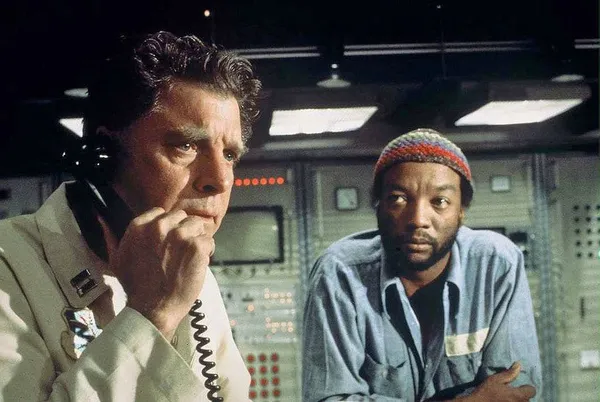Eye For Film >> Movies >> Twilight's Last Gleaming (1977) Film Review

1977 might be seen as a transitional year. It was the first of the Carter administration in the US, whilst in the USSR, Leonid Brezhnev was at the helm. Each was handling his own crisis: Brezhnev was trying to ease in a new constitution, quiet dissent and avoid panic over a series of bombings in his capital, whilst Carter was dealing with the uneasy legacy of the Vietnam War. As citizens on both sides grew more cynical, the presentation of military positioning as necessary and heroic began to lose ground. Nuclear weapons, in particular, came to be seen less as peacemakers and more as a threat. The fatalism of the Eighties was setting in.
It was a time well suited to the talents of Robert Aldrich, who had always been cynical about the motives of military decision makers. This particular tale has a fair amount in common with Dr Strangelove (made 13 years earlier), but with far less in the way of humour. It sees renegade US Air Force general Lawrence Dell (Burt Lancaster) take over a nuclear missile base and threaten to launch those missiles unless the president (Charles Durning) goes on national television to reveal the cynical politics behind the Vietnam War. One of the flaws in his plan is that the president is actually quite naive about that, and it is his anguished process of discovery, in parallel with Dell's gradual awakening to the way established power is maintained, that forms the film's emotional and psychological core.

Wrapped around this is the series of power games, tactical tricks and bluffs inevitable in such a situation. The tension escalates well in the first half; it slackens a bit later, but by then the film has had time to develop its broader themes and introduce different types of existential threat. There are, alas, a lot of holes - several obvious solutions to Dell's threat are overlooked, and Dell displays a tactical naivety, especially in the final scenes, which one would not expect of a man of his rank - but to be fair, military history is littered with such blunders. Aldrich sets up an interesting opposition between Dell and one of his co-conspirators, Willis Powell (Paul Winfield), who doesn't have the general's education but proves sharper in his awareness of how the world works due to being working class and black.
Stylistically, Twilight's Last Gleaming is notable for its unusually effective means if split screen, sometimes showing us as many as four different perspectives at once. This is at its best when one of the views on offer shows us an apparently static vista so that, whilst following the action elsewhere, we have our peripheral vision constantly alert to the possibility of movement and threat, just as the men in the missile silo do. It's one of several tricks used to create a sense of action and dynamism in a film which, for much of ts running time, is essentially about two groups of men sitting about.
An affectionate ode to the days when people really believed that broadcasting the truth could change the world, this film is nevertheless suspicious of tat belief, and its ambiguous ending pints p he fact that some have paid a heavy price for it. It may be asking Americans to wake up, but the American Dream is alive and well at its heart, and Aldrich was well aware of that conflict.
Reviewed on: 28 Oct 2016


















